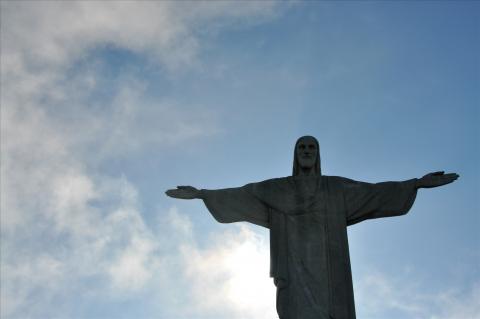
The following scripture reflection is also found in A Maryknoll Liturgical Year: Reflections on the Readings for Year C.
When the people with whom I work meet each week to prepare the celebration of the Eucharist, one of the first things they do is a reflection on the readings. After these many years in Brazil, I have become very appreciative of their method: They reflect on the readings in the time of Christ, and then they will try to bring these readings into their daily life.
It is amazing, being here in Brazil, how I am in touch with the rest of this world. Thanks to today’s methods of mass communication – internet, TV, radio, newspapers – I have instant access to what is going around the globe. Most Brazilians I work with know about the wars that are being waged in Afghanistan and between Israel and Palestine. They know the political differences between Colombia and Venezuela; the barriers that nations are creating to limit immigration, including the walls being constructed along the Mexican-U.S. border, as well as the wall raised up to separate Israel and Palestine.
In the first reading, verse 18, Isaiah tells us that God will come to unite all peoples and tongues. And in the last verse the author tells us that from all corners of the world, people will come together in adoration of the living God. One of the women who helps prepare our Sunday liturgies said to us, “How many years have passed since this book was written, and yet we seem so far from what Isaiah is telling us. Why is it that over all this time, we seem to be creating even greater distances among one other?”
In today’s gospel, Luke tells us that Jesus, on his way to Jerusalem, visits the towns where the people gather and there teaches them. When someone questioned him about how many will be saved – will it only be a few? – Jesus does not directly answer the question. He states that salvation is universal and is open for all. But to arrive it is necessary to pass through a narrow gate.
It is not enough to say, that we sit at the table and eat with Jesus, that we have sat in the plaza and listened to his teaching. Christ says to those who are present to him, “Go away from me, all you evildoers.” But it is not enough, Jesus teaches us, that we practice justice. At another time, Christ teaches that those who want to pass through this narrow gate must practice justice and have compassion.
In preparing this liturgy for Sunday the people with whom I work say how necessary it is to respect others, no matter where they were born; to appreciate and protect God’s creation, to not throw our litter on the streets; and to keep our cars in condition, so that they do not pollute. Then one of the men in the liturgy group says, if we do these things, then we, as Isaiah wrote, will be those who come from the east, west, north or south and take our place at the table in the Kingdom of God.
